Pictures
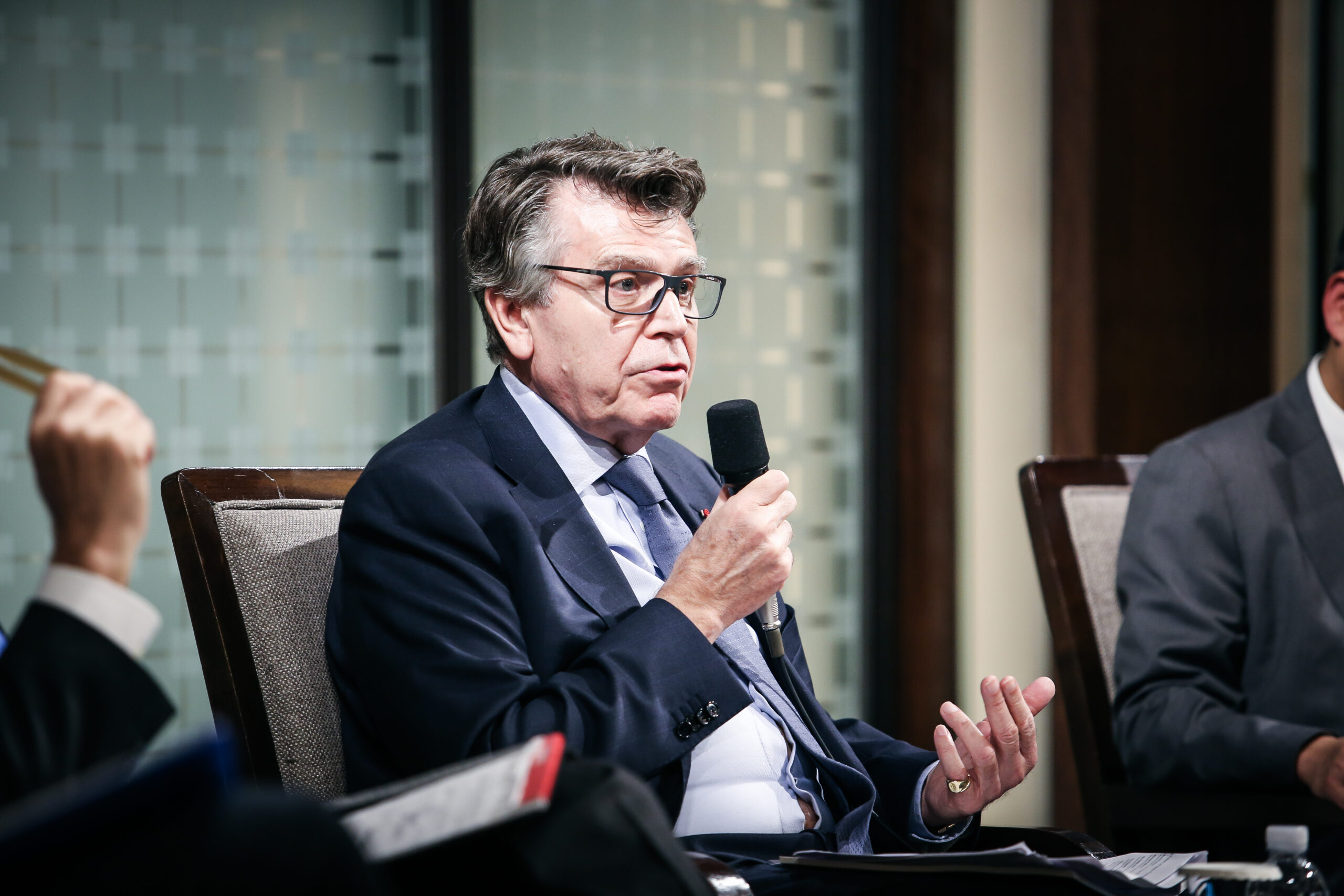
Thierry de Montbrial
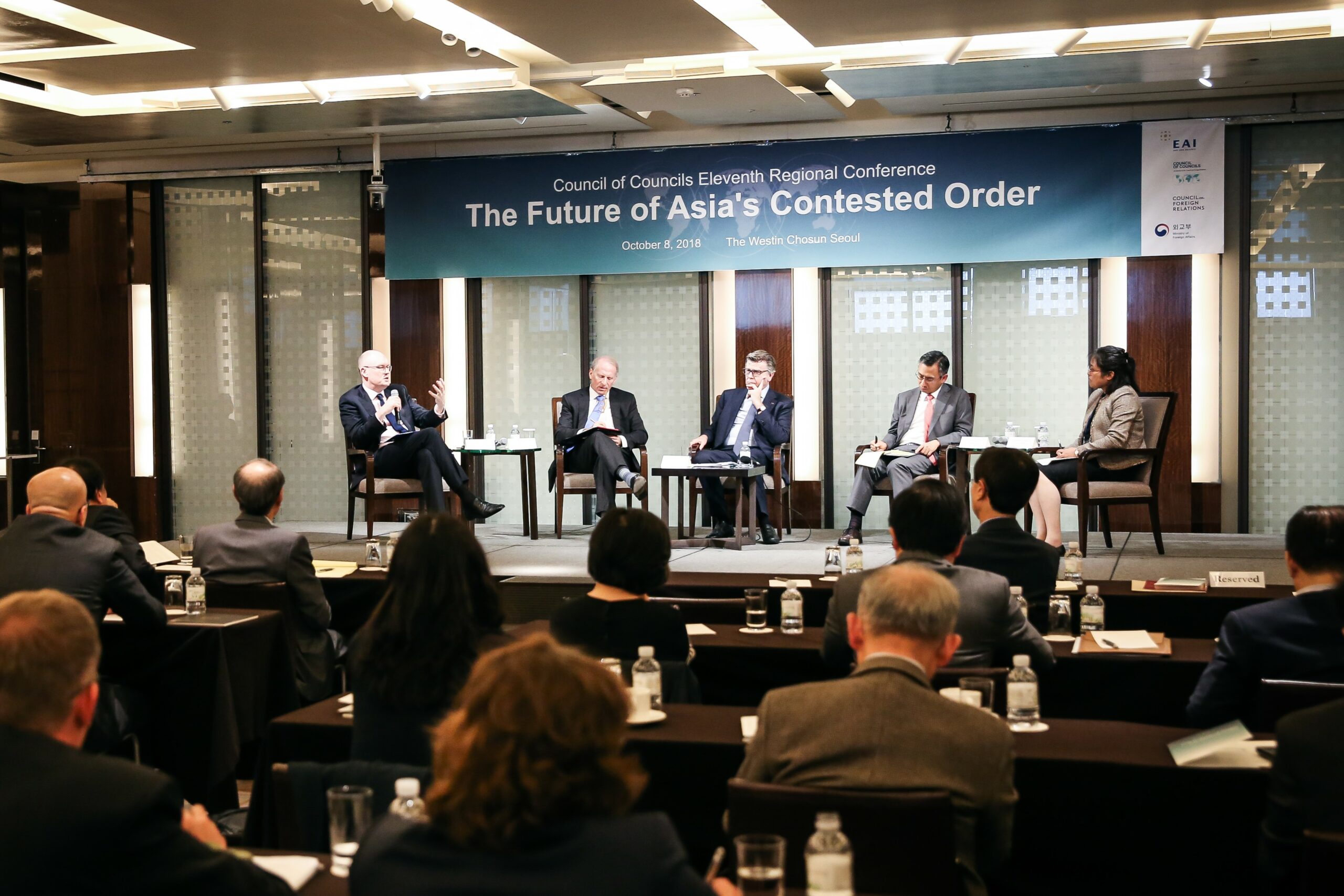
With Richard N. Haass, Michael Fullilove, Ma Sang-yoon, Wu Chunsi, Lee Hong-koo
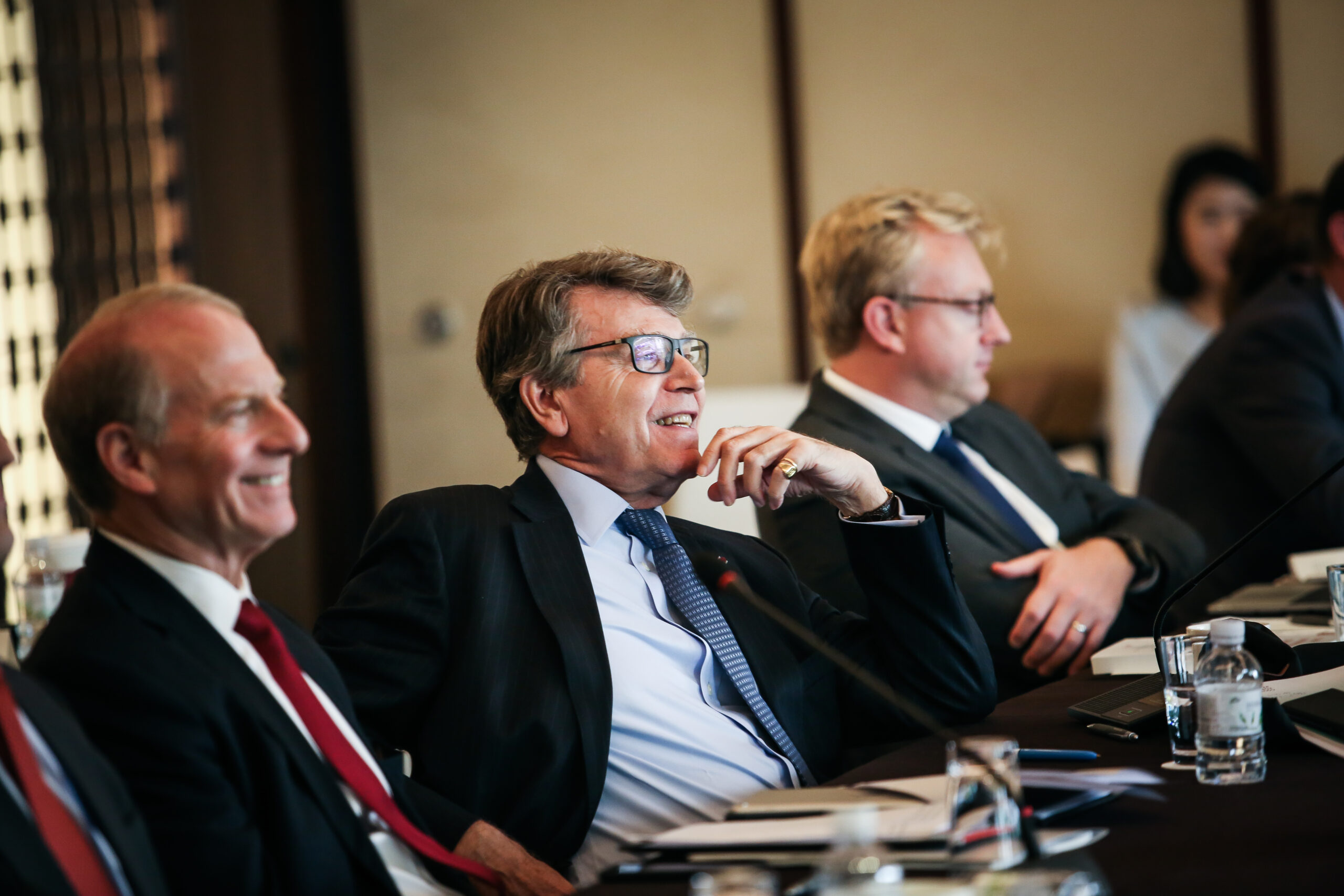
With Richard Haass
International Relations
Speeches
Council of Council's regional meeting in Seoul, October 8, 2018
Organized by the Council on Foreign Relations and the East Asia Institute
What is the current state of Asia’s regional architecture, and what are the chances of a regional security architecture emerging? How can existing regional and multilateral institutions and forums decrease regional tensions? How does China fit in the regional architecture? Are countries in the region beginning to reevaluate their assessment of China’s intentions and what China’s rise means for them? How should we assess Xi Jinping’s foreign policy initiatives, principally the community of common destiny and Belt and Road Initiative? What does the Trump administration’s desired regional architecture for the Indo-Pacific look like, and how divergent is it from the interests of other powers in the region? How can regional middle powers hedge against increasing tensions in the region? What policies can other major Asian powers pursue against this backdrop?
Panelists:
Richard N. Haass, President, Council on Foreign Relations (United States)
Michael Fullilove, Executive Director, Lowy Institute (Australia)
Ma Sang-yoon, Director-General for Strategy, Ministry of Foreign Affairs (South Korea)
Wu Chunsi, Director of the Institute for International Strategic Studies, Shanghai Institutes for International Studies (China)
Moderator:
Thierry de Montbrial, Executive Chairman, French Institute of International Relations (France)
Keynote Remarks:
Lee Hong-koo, Former Prime Minister of the Republic of Korea and Founding Chairman of the East Asia Institute (South Korea)
On October 7-9, 2018, the East Asia Institute (EAI) and CFR will convene the eleventh Council of Councils regional conference in Seoul, South Korea.
Participants will discuss five major themes:
The defining foreign policy challenges of the twenty-first century are global in nature. To help direct high-level international attention and effective policy responses to these threats and opportunities, the Council on Foreign Relations (CFR) has created the Council of Councils (CoC). The CoC is composed of twenty-nine major policy institutes from some of the world’s most influential countries. It is designed to facilitate candid, not-for-attribution dialogue and consensus-building among influential opinion leaders from both established and emerging nations, with the ultimate purpose of injecting the conclusions of its deliberations into high-level foreign policy circles in members’ countries.

Thierry de Montbrial

With Richard N. Haass, Michael Fullilove, Ma Sang-yoon, Wu Chunsi, Lee Hong-koo

With Richard Haass
Conversation with Charles Michel, Former President of the European Council
09 September 2025
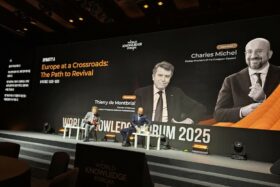
Opening Remarks of the 17th edition de la World Policy Conference
13 December 2024
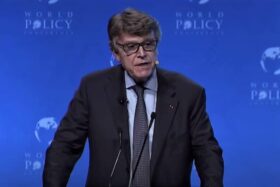
17h edition of the World Policy Conference
10 December 2024
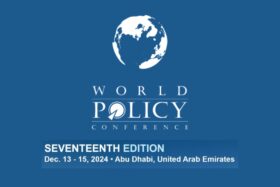
Opening Remarks of the 16th edition of the World Policy Conference
03 November 2023
